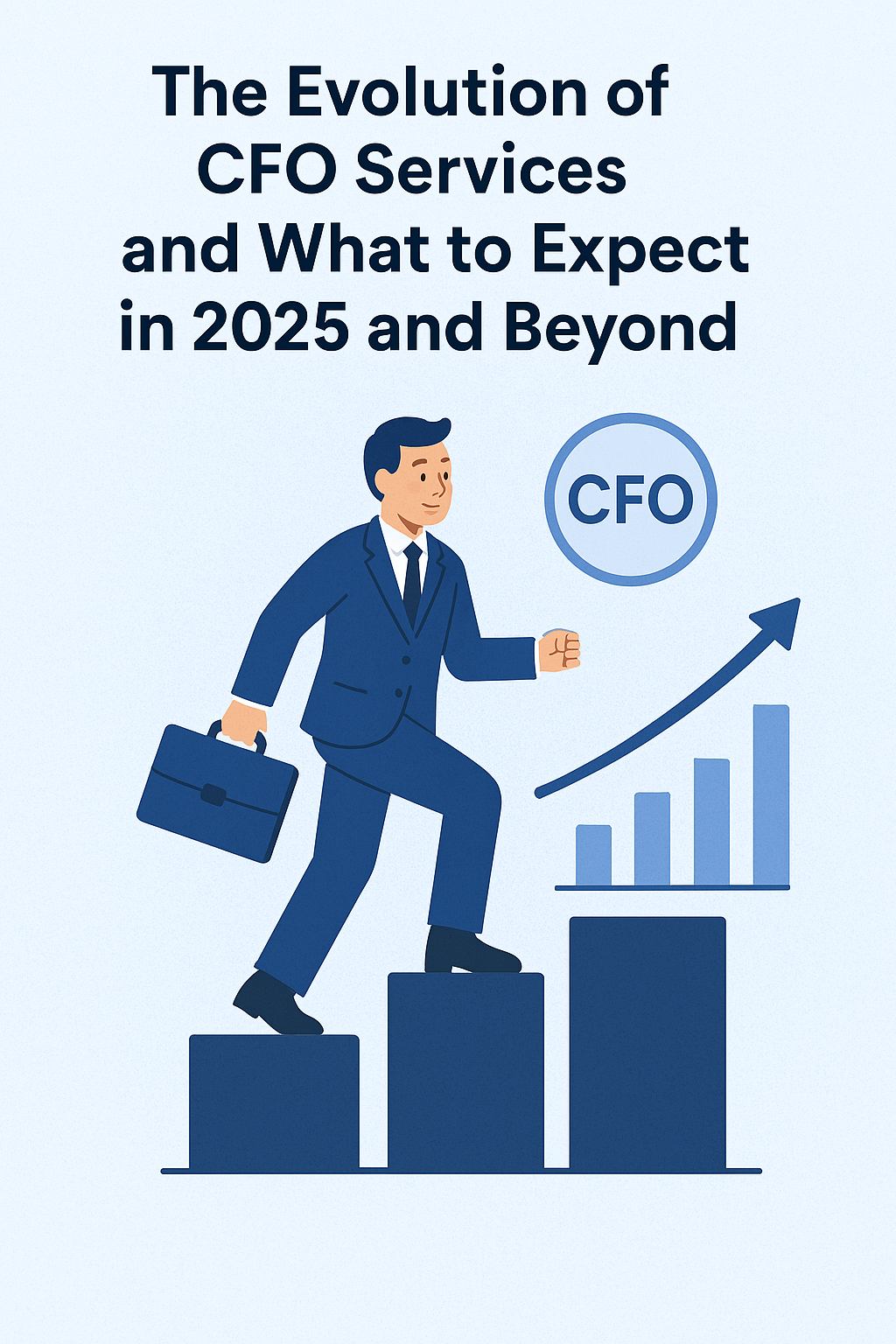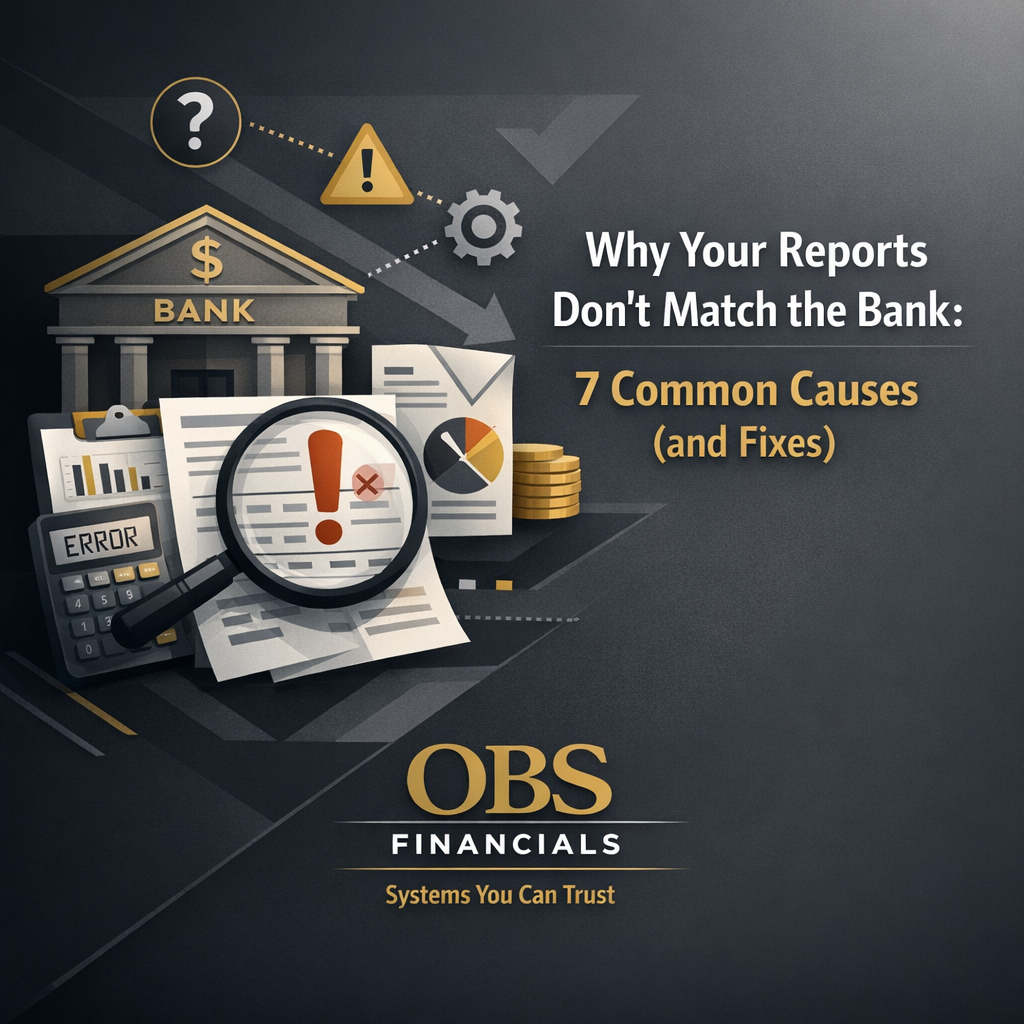In the dynamic realm of business finance, the Chief Financial Officer (CFO) role has significantly evolved. Today, CFO services encompass a broad spectrum of financial management, accounting, and strategic guidance, extending beyond traditional full-time positions. With the emergence of fractional and outsourced CFO services, businesses of all sizes can access top-tier financial expertise without the hefty commitment and expense of a full-time CFO.
Whether you’re a startup aiming to manage cash flow efficiently, a small to medium-sized enterprise (SME) seeking strategic financial direction, or a larger organization striving to enhance financial reporting and management, CFO services are customized to fit your unique business requirements.
For many organizations, the decision has shifted from whether to hire a CFO to how to optimally utilize CFO services to foster growth, maintain financial health, and navigate the complexities of contemporary finance. This involves leveraging financial strategies, improving cash flow management, and making data-driven decisions that support long-term business goals.
As we explore the progression of CFO services, it becomes evident that the CFO’s role now extends beyond financial oversight to include being a strategic visionary and a technological innovator.
The Evolution of CFO Services
Traditional CFO Responsibilities
Initially, the CFO’s primary duties revolved around ensuring precise financial reporting, maintaining financial controls, and overseeing the company’s budget. The CFO acted as the guardian of the company’s financial stability, focusing on interpreting historical data, managing budgets, assessing risks, and ensuring compliance. This role was predominantly reactive, providing financial insights based on past performance to keep the organization financially prudent.
Transition to Strategic Advising
Over recent decades, the CFO role has transformed from a conventional financial steward to a strategic business partner. Modern CFOs play an essential role in driving business growth and profitability by offering predictive analytics to inform decisions and anticipate future trends. They engage in a variety of strategic activities including financial planning and analysis, capital management, risk management, business strategy formulation, and investor relations.
This evolution has positioned CFOs as key collaborators across business functions and as strategic allies to the CEO, aiding in shaping portfolio strategies and overseeing major investment and financing decisions.
Embracing Technology
The incorporation of technology has been essential in the CFO role’s evolution. The rise of advanced analytics, blockchain, artificial intelligence (AI), and machine learning (ML) has revolutionized the financial landscape.
Today’s CFOs utilize these technologies to enhance accuracy, efficiency, and collaboration, providing real-time data and insights that support strategic decision-making. Tools like real-time reporting and predictive analytics allow CFOs to continuously monitor financial performance and make timely adjustments to strategies and operations.
This technological integration also enables CFOs to focus more on strategic initiatives, such as identifying new business opportunities, improving operational efficiency, and managing complex risks like cybersecurity threats and market volatility.
Emerging Trends Influencing CFO Services in 2025 and Beyond
Adoption of AI and Machine Learning
The use of Artificial Intelligence (AI) and Machine Learning (ML) is transforming the CFO role in 2025 and beyond. CFOs are leading the charge in utilizing these technologies to enhance financial operations, decision-making, and risk management. AI is employed to improve predictive analytics, automate routine tasks, and enhance financial forecasting.
For example, AI can identify patterns in financial data that may not be evident through traditional methods, enabling CFOs to make more informed and timely decisions.
Enhanced Focus on Sustainability and CSR
Sustainability and Corporate Social Responsibility (CSR) are gaining prominence for CFOs. As regulatory standards for Environmental, Social, and Governance (ESG) reporting evolve, CFOs are responsible for integrating ESG metrics into financial reporting and strategic planning.
This role involves not only ensuring compliance with ESG regulations but also using ESG data to guide business decisions and bolster the company’s reputation and long-term financial health. CFOs are now expected to develop a comprehensive ESG framework that aligns with the company’s overall strategy and effectively communicates with stakeholders.
Increased Collaboration via Cloud Technologies
Cloud technologies are enhancing collaboration and efficiency within the finance function. CFOs are leveraging cloud-based solutions to streamline financial processes, improve data integrity, and provide real-time access to financial information. These technologies enable seamless integration with other business systems, such as ERP and HR, creating a unified source of financial data.
This integration not only improves collaboration across departments but also minimizes errors and boosts the overall efficiency of financial operations. Additionally, cloud-based tools support advanced analytics and interactive dashboards, making it easier for CFOs to deliver strategic insights and drive business growth.
The Future CFO: Strategic Visionaries and Tech Innovators
From Financial Stewards to Strategic Leaders
The future CFO role is set to be one of strategic visionaries, extending beyond traditional financial guardianship. This transformation involves CFOs becoming essential partners in shaping overall business strategy and driving growth initiatives.
CFOs will be expected to champion technological innovation, oversee investment decisions, and define success metrics for the organization. As Taimur Mir describes, CFOs are evolving into “Chief Future Officers,” tasked with understanding and leveraging technologies like cloud computing, artificial intelligence (AI), and machine learning to drive strategic change.
They will need to build and lead diverse teams, including experts in data science and AI, to foster innovation and creativity within the finance function. This includes managing diversity, motivating a broader range of personnel, and cultivating a culture of collaboration across the organization.
The ability to work closely with other C-suite executives, such as the CEO, COO, and CIO, will be essential in ensuring that financial strategies are in sync with overall business objectives.
Emphasizing Continuous Learning and Adaptability
Continuous learning and adaptability are critical for CFOs to excel in their future roles. The fast pace of technological advancements and the growing complexity of global markets require CFOs to stay ahead of the curve. They must be proficient in data analytics, automation, and AI to interpret complex data sets and drive innovation within their organizations.
Ash Noah of AICPA & CIMA notes that CFOs need to transition from being “report generators” to “value generators,” necessitating a deep understanding of data and its strategic application.
CFOs will also need to develop strong leadership skills to effectively manage change and foster a culture of innovation. This includes leading digital transformation initiatives, encouraging innovation, and driving sustainable growth while managing risks and uncertainties. The ability to anticipate future trends and disruptions using tools like scenario planning will be essential in preparing organizations for upcoming challenges.
Conclusion
In summary, the evolution of CFO services has transformed the Chief Financial Officer role from a traditional financial guardian to a strategic visionary and technological innovator. As businesses navigate the complexities of modern finance, leveraging advanced technologies, sustainability initiatives, and strategic advisory services is essential. For companies aiming to optimize their financial management, enhance profitability, and drive growth, outsourcing CFO services offers a cost-effective and highly advantageous solution.
If you’re looking to elevate your business with expert CFO services, including budgeting, forecasting, cash flow management, and strategic financial advice, consider partnering with OBS Financials. Our team of experienced CFO specialists is committed to providing proactive guidance, innovative solutions, and tailored financial strategies to meet your unique business needs.
Visit our CFO services page at OBS Financials to learn more and take the first step towards unlocking your business’s full potential.
FAQ
What are the key strategic focuses that CFOs need to prioritize in 2025 to drive business growth and performance?
In 2025, CFOs should prioritize several key strategic areas to drive business growth and performance. These include:
- Embracing a Broader CFO Mandate: Taking a more active, operational role and expanding skillsets beyond accounting to focus on forward-looking information and strategic decision-making.
- Navigating Inflation & the Macroeconomic Landscape: Implementing strategies such as cost-cutting, enhancing procurement and supply chain management, and balanced investments in resilience and growth.
- Supply Chain Disruption & Management: Strengthening supply chain operations through strategies like reshoring, nearshoring, and investing in technology for supply chain visibility.
- Advancing ESG Initiatives: Implementing sustainability plans, disclosing carbon emissions, and meeting stakeholder expectations to mitigate regulatory risk.
- New Technologies & Automation: Investing in digital transformation, including AI, machine learning, and hyper-automation to streamline processes and enhance analytical capabilities.
- Data Visibility and Metrics: Focusing on data-driven insights, tracking a wider range of KPIs, and sharing metrics with operational leaders to improve business performance.
- Cybersecurity and Regulatory Compliance: Strengthening cybersecurity measures and staying ahead of regulatory and policy changes to manage financial risk.
How are CFOs expected to leverage technology, such as AI, machine learning, and cloud-based solutions, to enhance financial operations and decision-making in 2025?
In 2025, CFOs are anticipated to leverage technologies like AI, machine learning, and cloud-based solutions to automate routine financial tasks, enhance predictive financial intelligence, and obtain real-time financial insights. They will utilize AI for forecasting, risk assessment, and automated financial reporting. Cloud-based solutions will facilitate cross-functional collaboration, FinOps best practices, and efficient tax planning.
Additionally, AI will be integrated into core enterprise systems to modernize and streamline financial operations, driving digital transformation and enabling more informed decision-making.
What role will data-driven decisions and advanced analytics play in the CFO’s responsibilities for strategic financial planning and business strategy in 2025?
In 2025, data-driven decisions and advanced analytics will be central to the CFO’s responsibilities in strategic financial planning and business strategy. CFOs will leverage real-time data, AI, and predictive analytics to make informed decisions, anticipate risks, and drive growth. This includes using data to enhance forecasting, cash management, and organizational transformation, as well as to inform acquisition or IPO decisions and streamline ESG reporting.
How are CFOs adapting to manage remote and global teams, and what strategies are essential for maintaining productivity, compliance, and company culture in a distributed workforce?
CFOs are adapting to manage remote and global teams by implementing several key strategies:
- Hybrid Work Models: Encouraging flexible work arrangements that balance office and remote work, setting clear expectations for when employees need to be in the office and when they can work remotely.
- Technology and Tools: Investing in virtual collaboration tools, cloud-based services, and software-defined network architectures to enhance productivity and ensure data security.
- Global Talent Access: Leveraging remote work to tap into a global talent pool, while ensuring compliance with local labor laws and regulations.
- Clear Communication and Feedback: Establishing clear communication channels, welcoming feedback, and fostering a culture of trust and accountability to maintain morale and productivity.
- Focus on Outcomes: Emphasizing outcomes rather than micromanagement, and promoting work-life balance to mitigate burnout risks.
- Compliance and Governance: Ensuring compliance with financial regulations and standards, and tracking remote workers to meet regulatory requirements.
Meta Description:
Discover the future of CFO services in 2025 and beyond. Learn how CFOs are evolving into strategic leaders, leveraging technology, and driving sustainable growth. Read now to stay ahead.




